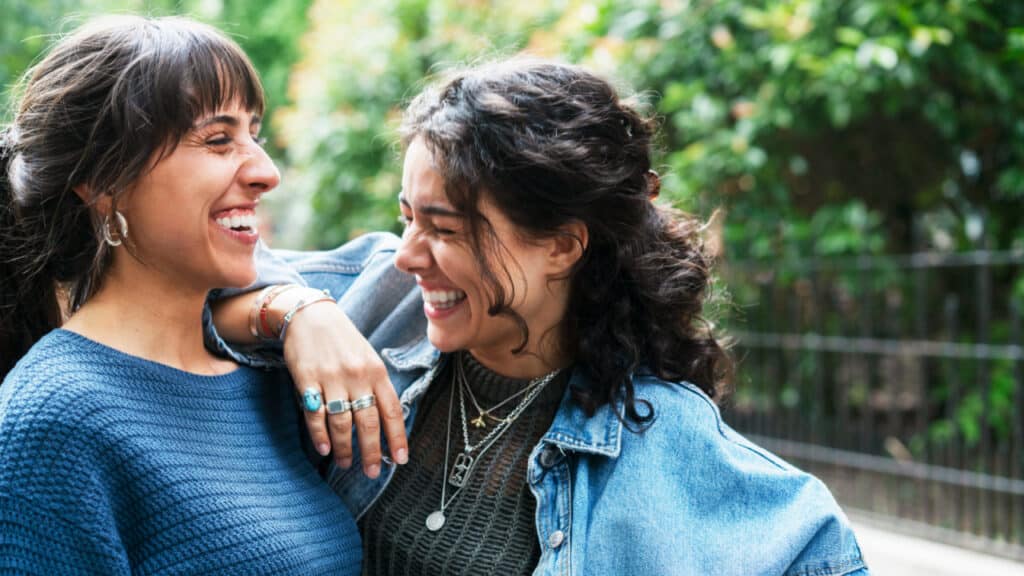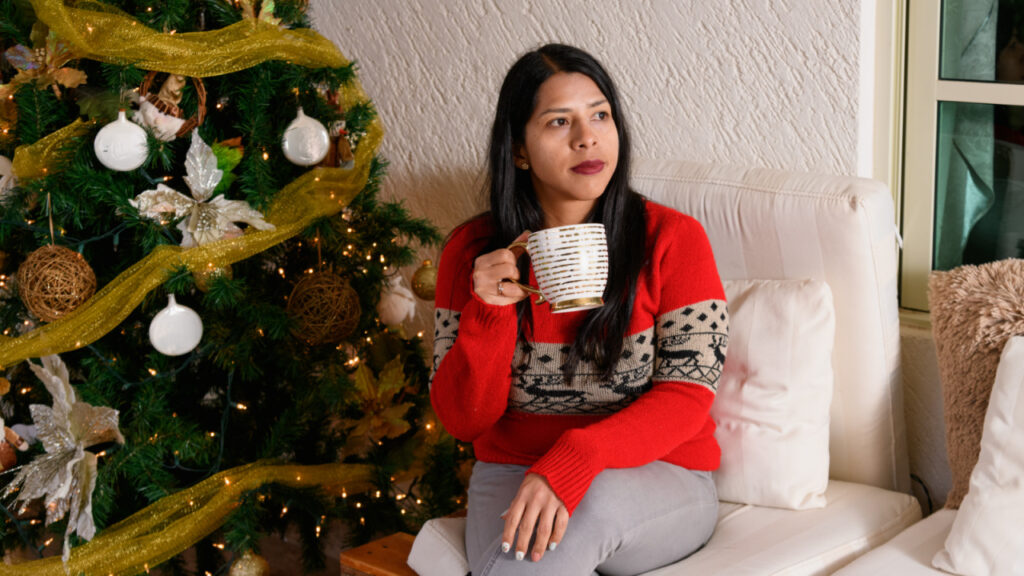A ‘Bad Dominican’ by Choice: My Fight Against Anti-Haitianism and Racism as a Dominican-American Mother
Ever since I was a little girl, I was aware of my blackness. I grew up with my single mother, who is Dominican-American, and mis abuelas. While they loved me with every fiber of their being, they internalized the anti-Black ideology of their environment and upbringing in the Dominican Republic (DR).
In DR, people associate whiteness with goodness, beauty, and superiority. They never made me feel ugly or inferior because of my complexion. However, they did say things like “salte del sol. Te vas a poner prieta.” They advised me to stay out of the sun to avoid getting darker.
I had racist light-skinned aunts who called my thick curly hair “pelo malo” and “a rat’s nest.” My African ancestors were evident in my physical features, and my Tias were determined to make sure I knew that I needed to straighten my hair to be considered beautiful.
Origins of Anti-Blackness and Anti-Haitianism
The origins of anti-Blackness and anti-Haitianism are rooted in the country’s colonial past. Under colonial rule, those near the White Spaniards had more privileges and freedoms, which instilled a sense of superiority among the lighter-skinned Dominicans.
This ideology continued and thrived under the rein of the vicious dictator Trujillo. He was the President for over 30 years, and he hated his own Blackness and Haitian roots. His grandmother was Haitian, but he weaponized his hate for his Blackness toward one enemy— Haitians. Economically, the people were suffering, and he needed a scapegoat to blame poverty on.
He ruled using force. According to UC Berkley, his security forces were responsible for killing 12,000 and 30,000 Haitians in the Parsley Massacre in 1937, which continues to affect Dominican-Haitian relations to this day. It was called the Parsley Massacre because, supposedly, Haitians could not say parsley in Spanish without a French accent.
I Have Experienced This Reality Firsthand and Face-to-Face
Fast-forward to July 2017, when I was almost arrested in the Dominican Republic. I was living and working for an educational nonprofit there. I answered emails at the coffee shop run by the nonprofit to raise additional funds for its mission.
Suddenly, a Dominican Immigration Officer barges in. My gaze is locked on the enormous shotgun in his hands. He stops one of my students. She is a 12-year-old Dominican girl of Haitian descent. He yells, “Y tus papeles?” demanding to see her citizenship documents.
I’m startled and then my eyes are fixed on his massive shotgun. He grabs one of my 12-year-old students and yells, “Y tus papeles?,” demanding to see her citizenship documents.
I position myself between them to protect her. He looks young—maybe in his early twenties. He is wearing a camouflage military uniform. His complexion is even darker than my mocha skin. His gun, uniform, and badge give him power and permission to “other” those who appear Haitian. The irony in his actions was evident, deporting Haitians who looked like him.
I’m hoping my limited knowledge of the everchanging Dominican immigration laws exceeds his. I firmly argue, “She is a minor, and legally, you cannot deport her without her parents.” He looks me in the eye and sizes me up while pointing his gun in our direction. After a long pause, he storms out without a word.
I stand frozen in place until I hear his footsteps fade. I walk toward the door and lock it. I peek through the curtain, and when the bus leaves, I unintentionally sigh loudly. My heartbeat begins to slow, the heat on the back of my neck disappears, and my body relaxes.
My student walks toward me and hugs me. Word clouds fill my mind as I try to find the words to comfort her. But before I can formulate a coherent thought, she asks, “Is it because we are Haitian?” I nod, affirming her suspicion. With a calmness well beyond her years, she asks, “Why do they hate us?” I am at a loss for words.
Nowadays, In the Current Situation in the Dominican Republic, I’m labeled ‘A Bad Dominican’
Presently, the Dominican Republic is deporting 10,000 Haitians, Dominicans of Haitian descent, and dark-skinned Dominicans to Haiti a week. Many of those being deported are forced out of the Dominican Republic without resources or ties to Haiti.
I’ve been called a “traitor” and a “bad Dominican.” I have received hateful messages and DMs when I have shared my viewpoint.
Interestingly, Dominican immigrants are the fourth-largest Latin American immigrant group in the United States.
As a Dominican American, I often ask Dominicans living in the United States who support the idea of Haitian deportation—what if one day the United States decided that one’s nationality was going to be based on one’s birth parent? What if anyone born in the USA after 1929 would only be granted citizenship if they could prove their parents were American citizens?
Personally, I would be stateless. I would not be eligible for American citizenship because my family did not gain citizenship in the United States until the 70’s, which is after 1929. This is what the Dominican Republic is doing to Dominicans of Haitian descent, and it’s an injustice that I can’t support.
On many occasions, I’ve also been told that I’m not a “real Dominican” and that I’m not welcome to return to the Dominican Republic. They argue I’m a “naive” “Haitian-lover” who doesn’t understand the history and how Haiti occupied the Dominican Republic.
However, I Have Studied the History
I remind them that while Haiti did invade and occupy the Dominican Republic, they did so to liberate the whole island from colonization and slavery. After Haitians fought for their independence from France, they wanted to rid the island of Hispañola of all colonial forces.
They had to occupy the whole island to remove Spaniard rule. But the mostly white ruling class that was getting rich from the exploration of Black enslaved peoples feared Black Haitian rule that outlawed slavery. According to Dominican historians, the President of Haiti, Jean-Pierre Boyer, was cruel, but was he more brutal than the slavery under Spain?
The island’s eastern (Dominican) side didn’t want to be under Jean-Pierre Boyer’s rule and fought for independence from Haiti.
However, if it weren’t for Haiti, the Dominican Republic would not exist as it would have been under Spaniard rule for much longer. Of course, when I bring this up, I am labeled as “misinformed,” “brainwashed,” and “wrong.”
Writing this piece exposes me to receiving even more hate mail. But I firmly believe that the Dominican Republic isn’t going to accomplish its “economic goals” through hate and scapegoating Haiti.
But What Can We Do?
We need to educate ourselves and be critical of what we are taught. Why do Dominican schools teach that Haiti was the enemy we needed to liberate ourselves from instead of being critical of the Spaniard colonizers who enslaved thousands of citizens?
I firmly believe that education will lead to our liberation. We need to study history with a critical lens instead of passively accepting what is taught without question.
As a Dominican-American mother, author, and activist, I take on the responsibility of speaking up against these human rights violations. I discuss this with my family, on social media platforms, and through other outlets to raise awareness of what is happening.
We need to amplify the stories of those experiencing statelessness at the hands of the Dominican government on social media, podcasts, articles, and the like. We need to take to the streets and protest. Those who can vote need to elect leaders who know this is not the solution.
Alyssa Reynoso-Morris is a queer Afro-Latine/x Dominican and Puerto Rican award-winning storyteller. Her ability to weave compelling stories has opened many doors for her as an author and speaker. She is a community organizer and mother of three (a singleton and twins). During the day, she works with community members, non-profit organizations, and government officials to make the world a better place. Then she puts her writer’s hat on to craft heartfelt stories about home, family, food, and the fun places she has been. Alyssa was born and raised in The Bronx, New York, and currently lives in Philadelphia, PA, with her family. She is the author of Plátanos Are Love, Los Plátanos Son Amor, The Bronx Is My Home, Gloriana Presente: A First Day of School Book, and Gloriana Presente: De la República Dominicana al Bronx. She hopes you enjoy her stories. You can learn more about her at alyssaauthor.com




